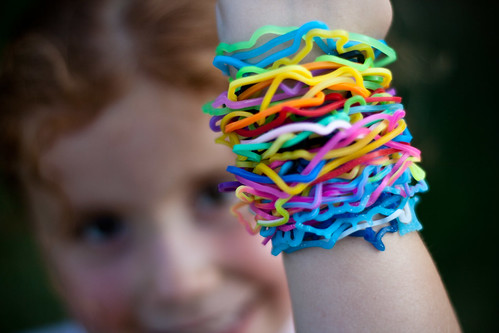My students recently worked on collaboratively writing fractured fairytales with
Jonathan Ferrell's class in Kansas.
We skyped initially as classes to read some fractured fairy tales from
The Stinky Cheese Man and Other Fairly Stupid Tales.
Skyping the first time with Jonathan's class
One student reading to both classes from The Stinky Cheese Man
We set up a group on
Edmodo where we posted information and shared the links to the
TitanPads (We chose TitanPad because it was available to Jonathan's students. Google Docs would have been a great place to collaborate, but his students don't have access to that this year.) the students would work on.
a screen shot from our Edmodo group
The students were so excited! We split them up into groups of two or three across classes. It was
wonderful because we were also able to schedule it so that students could work on the document at the same time! I checked in on the TitanPads each day so that I could peek in on the group's productivity.
Here are a few screenshots of snippets of students conversations in the side chat box in TitanPad. Notice that they use text speak in their chats, and that's ok! Their stories did not include text speak.
One student hadn't heard about Paul Bunyon, so he went to learn about it!
pondering how to get started
making changes to wording and deciding how to share
The students collaborated for about 30 minutes each day for a week. At the end of the project, we Skyped again, and many student groups read their stories aloud to the classes.
a student reading his fairytale with his partner
Many of the students posted their completed stories on our blogs:
These links may not be relevant past June as I plan to take down my students' blogs in preparation for next year.
Afterward, I talked with my group about what they thought about the project. A few of there thoughts were:
- It was fun to be able to work on the document at the same time.
- It was hard to come up with an idea that everyone agreed on.
- Some people took over the group and wouldn't allow others' ideas.
- I was aware of this and tried to intervene to make sure all authors were a part of the story.
- It was nice to have someone else to give ideas when I was stuck.
- It helped having other eyes to catch errors I made.
All-in-all we came to the conclusion that it had similar
drawbacks and
benefits that we encounter with face-to-face group work, but it was
motivating to work with students outside our building. It was a good end of the year activity because students were engaged when they were working on their tales together. It's definitely something I would do again with my students.
How could you apply this to your classroom? What collaborative projects have you tried?












